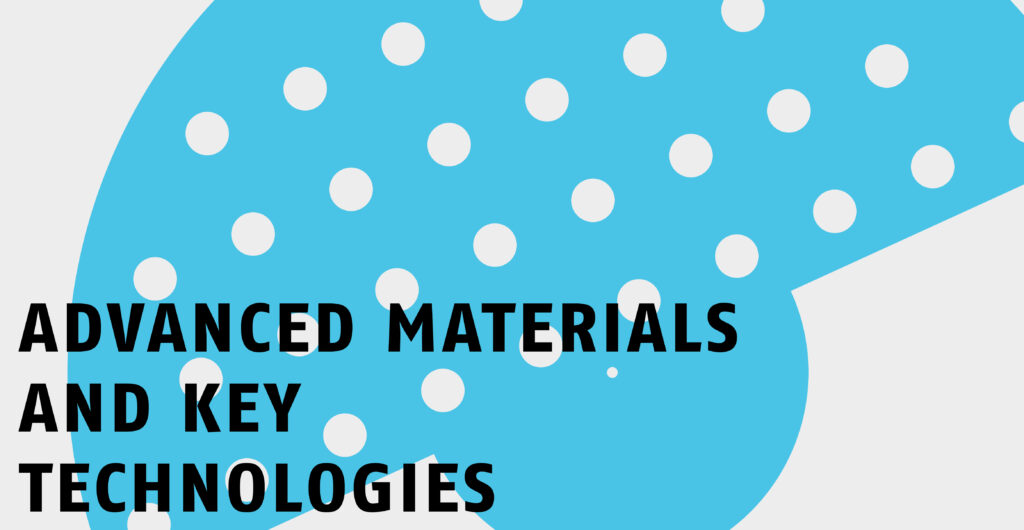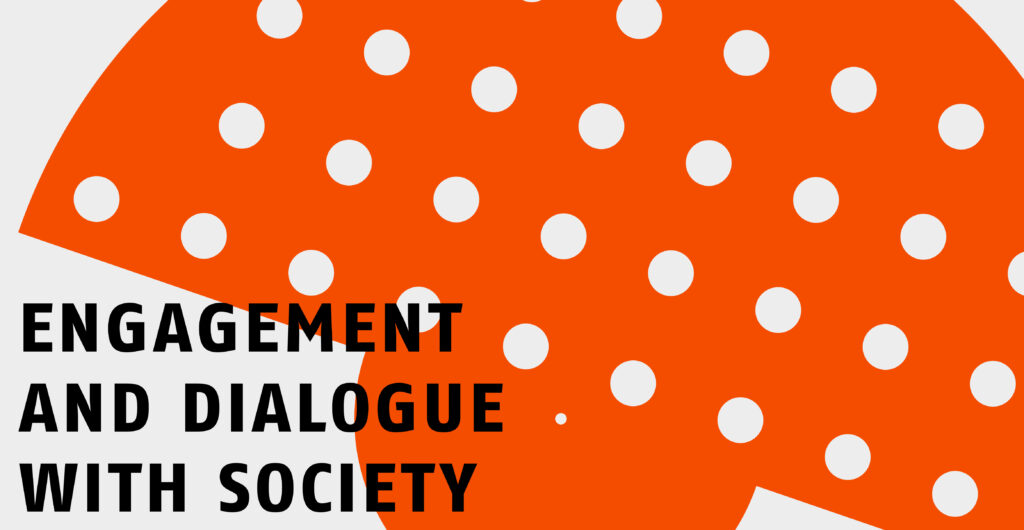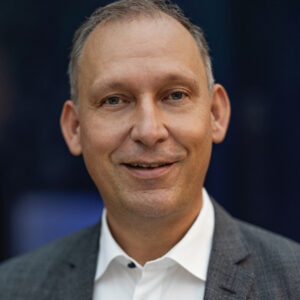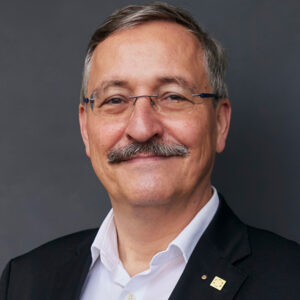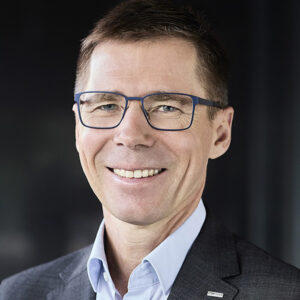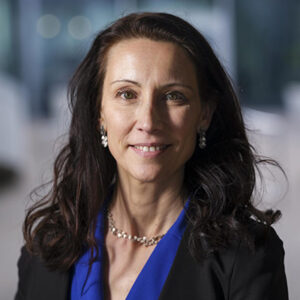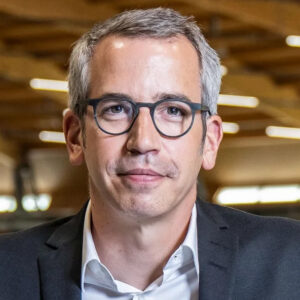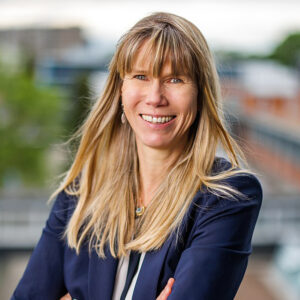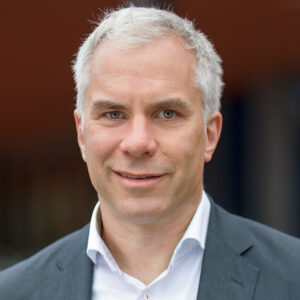On 8–9 December 2025 in Lausanne
Shaping the Future: ETH Domain Conference 2025
Impressions from the first edition of the ETH Domain Conference
The Shaping the Future: ETH Domain Conference 2025 is the first ETH Domain-wide event dedicated to fostering exchange, collaboration, and scientific progress across its Strategic Areas. Held over two days at the SwissTech Convention Center in Lausanne, the conference will bring together senior researchers, institutional leaders, and domain experts to discuss shared priorities and shape future initiatives. It is the result of collaboration between all institutions within the ETH Domain.
Highlights
- Connect with experienced researchers and leaders from across all ETH Domain institutions
- Discuss future initiatives and provide input to the 2029–2032 strategic planning process
- Engage in strategic plenary talks, scientific parallel sessions, and dynamic poster exchanges
- Explore the Strategic Areas of the ETH Domain
The Strategic Areas
To address the major challenges of our time, the ETH Domain has defined Strategic Areas. In these Strategic Areas the ETH Domain institutions are well positioned to have a particularly strong impact and enable them to focus their strengths on key issues for Swiss society and the Swiss economy.
- Human Health – improving our understanding of health and developing new medical approaches.
- Energy – developing solutions for sustainable and affordable energy.
- Climate and Environmental Sustainability – better understand and address climate change and ecosystems.
- Responsible Digital Transformation – exploiting the potential of digital technology while ensuring security and responsibility.
- Advanced Materials and Key Technologies – creating innovative materials and high-impact technologies.
- Engagement and Dialogue with Society – strengthening dialogue with society to build shared solutions.
These Strategic Areas together with fundamental discovery science, the cornerstone of the activities, provide clear direction for research and innovation in the ETH Domain in the years to come.
Registration
Registration for the conference is now closed.
Programme

10:00 – 11:00 ǀ Registration
11:00 – 11:15 ǀ Opening of the Conference
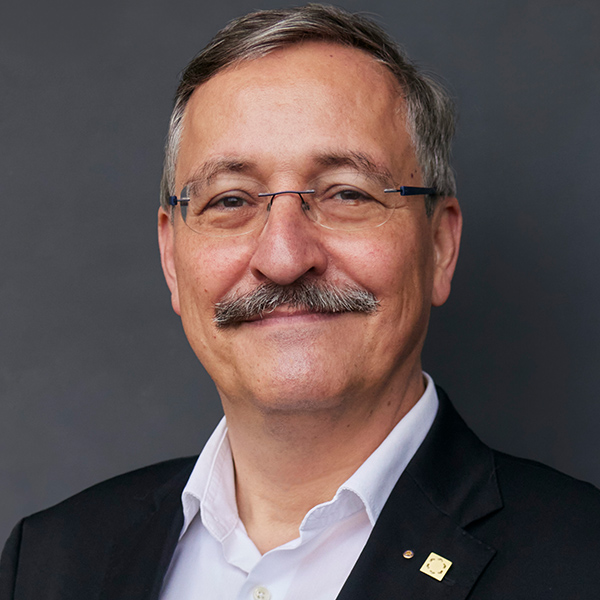
Prof. Dr Michael O. Hengartner
About
Michael O. Hengartner has been President of the ETH Board since 2020. He served as President of the University of Zurich (UZH) from 2014 to 2020, and President of swissuniversities from 2016 to 2020. He has dual Swiss and Canadian citizenship and grew up in Quebec City where he studied biochemistry at the Université Laval. In 1994, Michael O. Hengartner was awarded his doctorate at the Massachusetts Institute of Technology in the laboratory of Nobel Laureate H. Robert Horvitz. He then headed a research group at the Cold Spring Harbor Laboratory, USA. After that, he was appointed Professor at the Institute of Molecular Biology in 2001 and Dean of the Faculty of Science at UZH from 2009 to 2014. Michael O. Hengartner has an Executive MBA at IMD Lausanne and a number of awards for his research and teaching skills.
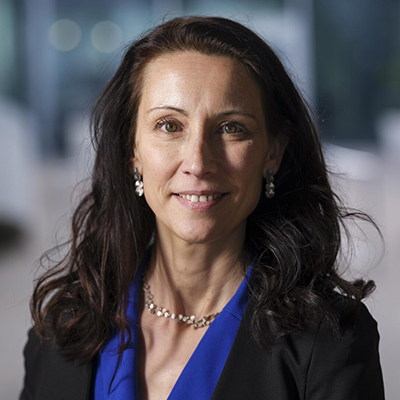
Prof. Dr Anna Fontcuberta i Morral
About
Anna Fontcuberta i Morral studied Physics at the University of Barcelona, followed by a PhD in Materials Science at the Ecole Polytechnique Palaiseau, France. Between 2001 and 2005, she conducted research as a postdoc and visiting researcher at the California Institute of Technology, Pasadena, USA, and as a CNRS researcher in France. During this time, she was co-founder of the successful start-up Aonex Technologies, a company that developed lower cost substrates for LEDs and multi-junction solar cells. She received her Habilitation degree in Experimental Physics at the Technical University of Munich, Germany in 2009.
Since 2008, she has been working at EPFL, where she was promoted to Associate Professor of Materials Science and Engineering in 2014 before being promoted to Full Professor in September 2019. She has established her Laboratory of Semiconductor Materials as the world leader in sustainable nanotechnologies. Between 2021 and 2024, she served as EPFL’s Associate Vice President for Centers and Platforms. In this latter role, she worked to build synergies across research disciplines boosting the reach of Centers (like EcoCloud, the Bernoulli Center and the Center for Quantum Science and Engineering) and she reinforced the possibilities for EPFL scientists and engineers access to state-of-the-art research facilities ( Research Computing Platform, Dubochet Center for Imaging, Center for Micronanofabriction to name a few). She joined the Research Council of the Swiss National Science Foundation (SNSF) in 2015 and, from 2020 to 2024, she served as chair of the SNSF’s specialized committee on international cooperation. In this role, she helped develop the international strategy and took part in a working group to design the recent changes to the SNSF’s bylaws and policies
Her work has been recognized through a number of distinctions. For instance, she was selected for a Marie Curie Excellence Grant in 2005, a European Research Council Starting Grant in 2009, an SNSF Back-up Schemes Consolidator Grant in 2015, and the Emmy Noether Distinction for Women in Physics from the European Physical Society, also in 2015.
She became President of EPFL in January 2025.
11:15 – 13:15 ǀ Plenary Session 1 ǀ Keynote Speeches
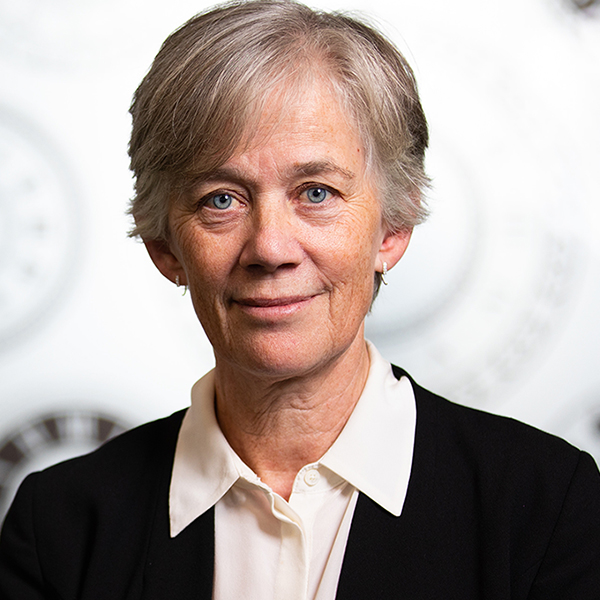
Professor Dame Angela McLean DBE FRS
Putting excellent science advice at the heart of decision making
Abstract
In this keynote address, the UK's Government Chief Scientific Adviser (GCSA) will discuss the importance of putting excellent science advice at the heart of decision making. In a year where the GCSA is taking a particular focus on climate adaptation, she will examine the role science can play in tackling climate-related challenges.
About
Professor Dame Angela McLean DBE FRS is the Government Chief Scientific Adviser having taken up the role in April 2023. She is also Head of the Government Science and Engineering Profession. Prior to this Angela was the Chief Scientific Adviser for the Ministry of Defence.
Until April 2023, Angela McLean was a Professor of Mathematical Biology in the Department of Zoology at Oxford University and a Fellow of All Souls College. Angela’s research interests lie in the use of mathematical models to aid our understanding of the evolution and spread of infectious agents.
Angela is interested in the use of natural science evidence in formulating public policy and has co-developed the Oxford Martin School Restatements: an activity which restructures and presents the evidence underlying an issue of policy concern or controversy in a short, uncharged, intelligible form for non-technical audiences.
Angela established Mathematical Biology at the Biotechnology and Biological Science Research Council’s Institute for Animal Health in 1994. Before this, Angela was a Royal Society Research Fellow at Oxford University and a Research Fellow at the Institut Pasteur in Paris.
In 2009 Angela was elected as a Fellow of the Royal Society. She has been awarded the Gabor Medal in 2011 and the Weldon Memorial Prize in 2018. She received her damehood in the 2018 Queen’s Birthday Honours List. In 2024 Angela was appointed an Honorary Distinguished Professor of Loughborough University.
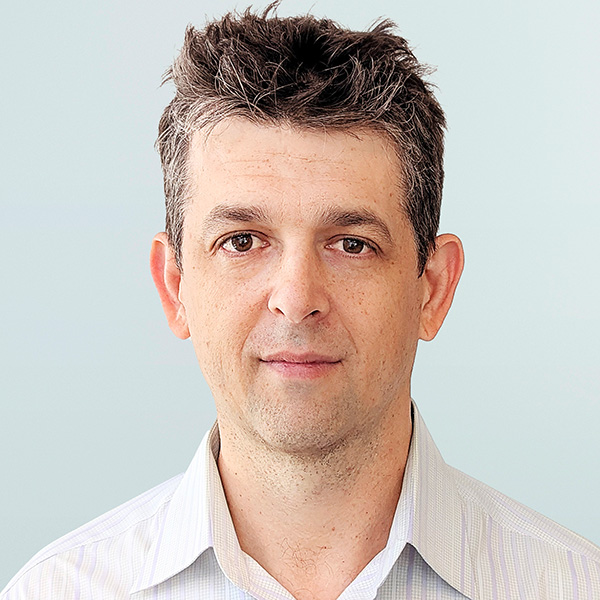
Dr Sergei Yakneen
AI models from atoms to humans: the era of rational in-silico drug design
About
Sergei Yakneen is the Chief Technology Officer at Isomorphic Labs, a company developing novel therapeutics and breakthrough AI technologies with the aim to solve all disease. Sergei has over 20 years experience in leading scientific research, engineering, machine learning, and product management applied to healthcare and life science.
Before joining Isomorphic Labs, Sergei was Senior Vice President and CTO at SOPHiA GENETICS, where he helped develop and run an AI-based molecular diagnostics and data-driven medicine platform operating in more than 70 countries.
Sergei has held senior roles at Amazon.com, the Ontario Institute for Cancer Research, the European Molecular Biology Laboratory, and at various startups.
Sergei has a degree in computer science and mathematics from the University of Toronto and a PhD in computer science from Heidelberg University, where he developed novel distributed algorithms for analysing cancer genomes.
13:15 – 14:15 ǀ Lunch Break
14:15 – 16:25 ǀ Parallel Sessions Strategic Areas 1: Talks
The Parallel Sessions provide a forum for in-depth discussion on each of the six strategic areas of the ETH Domain. They take place in parallel, allowing participants to choose the topics that best match their interests and field of research. Each session includes scientific presentations, discussions and opportunities for exchange, promoting knowledge sharing and the co-creation of new ideas. Click on the images to find out more.
16:25 – 16:40 ǀ Break
16:40 – 17:30 ǀ Poster Session
The poster sessions for all the Strategic Areas will be held at the same time to promote networking and exchange across the areas. The posters will be presented and provide a platform for scientists. Discover the list of participants and the titles of their posters on this page
17:30 – 18:30 ǀ Plenary Session 2 ǀ Science, Society, Security: The ETH Domain’s Responsibility for Switzerland’s Future
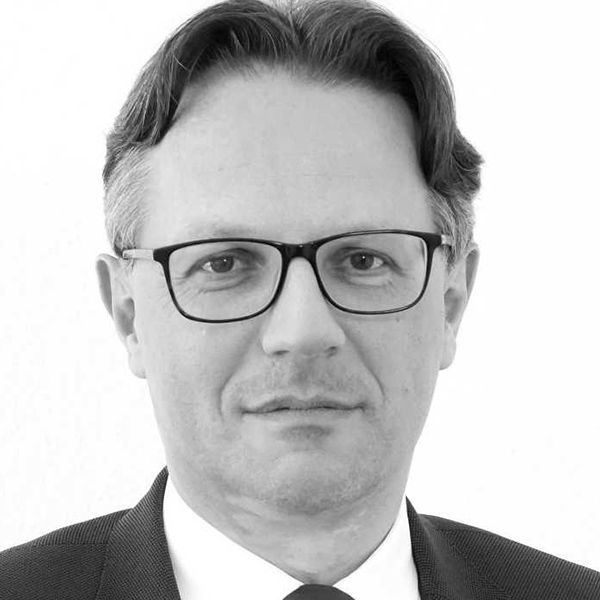
Dr Daniel Möckli
About
Dr Daniel Möckli is heading the Think Tank at the Center for Security Studies, ETH Zurich. He is working on geopolitical and geoeconomic trends, issues of global order and European security, and Swiss security policy. From 2021 to 2024, he was Head of Policy Planning at the Swiss Federal Department of Foreign Affairs (FDFA), overseeing strategy development and geopolitical analyses.
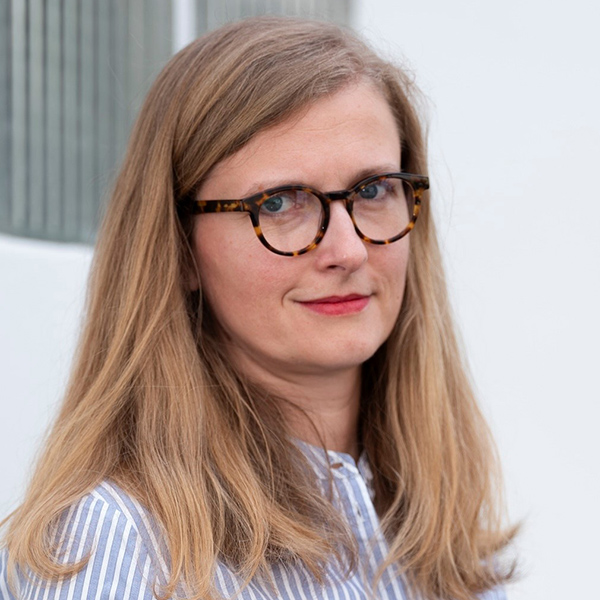
Prof. Dr Catherine Hoeffler
About
Catherine Hoeffler is an Associate Professor and Director of the Sidjanski Center in European Studies at the Global Studies Institute, University of Geneva, and Visiting Professor at the College of Europe. Her work focuses on the security-economic nexus and the evolution of states’ economic interventionism, which she analyses on topics such as the armament production or digital policies in Europe. Hoeffler holds a PhD in political science from Sciences Po Paris and has held positions among others at Sciences Po Bordeaux, the European University Institute, the Graduate Institute Geneva, and the Max-Planck-Institut für Gesellschaftsforschung.
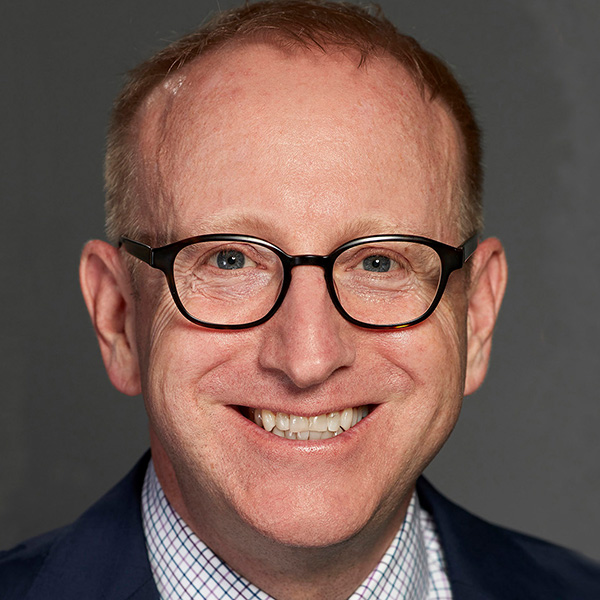
Prof. Dr James Davis
About
Prof. Dr. James W. Davis is Professor of Political Science with a special focus on International Relations and serves as Director of the Institute of Political Science at the University of St. Gallen. A native of the United States, he is regarded as one of the leading experts in the fields of international security policy, transatlantic relations, and U.S. domestic politics.
As a bridge-builder between Europe and the United States, as well as between academia and political practice, Prof. Dr. Davis is active in various advisory roles. Among other positions, he has served as an expert member of a parliamentary commission of the German Bundestag, as a member of the Chancellor’s Expert Group on “Germany’s Image in the World,” and participated in the review process of the White Paper of the German Federal Ministry of Defense in Berlin. He was also part of a delegation of the NATO Supreme Allied Commander in Afghanistan.
In addition to his regular column for the Ippen Media Group, his analyses have been published in major newspapers such as the Neue Zürcher Zeitung, Süddeutsche Zeitung, and Frankfurter Allgemeine Zeitung. He is also a sought-after guest on national and international television programs, including SRF’s Club, ZDF’s Maybrit Illner, BBC, and CNN.
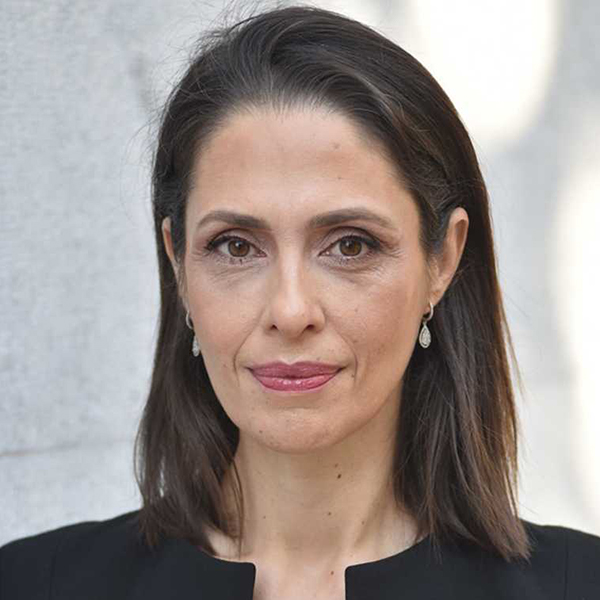
Prof. Dr Effy Vayena
About
Effy Vayena has been Professor of Bioethics at ETH Zurich since 2017. Her work focuses on ethical, legal and social issues concerning genomics, the application of artificial intelligence in healthcare and overarching governance challenges related to emerging technologies. She has held various academic and non-academic positions and has served on multiple committees in Switzerland and internationally, including the COVID-19 Science Task Force. At ETH Zurich, she has held the office of the Executive Board’s Associate Vice President for Digital Transformation and Governance for the last two years. Effy Vayena will take up the post of Vice President for Knowledge Transfer and Corporate Relations at ETH Zurich on 1 January 2026.
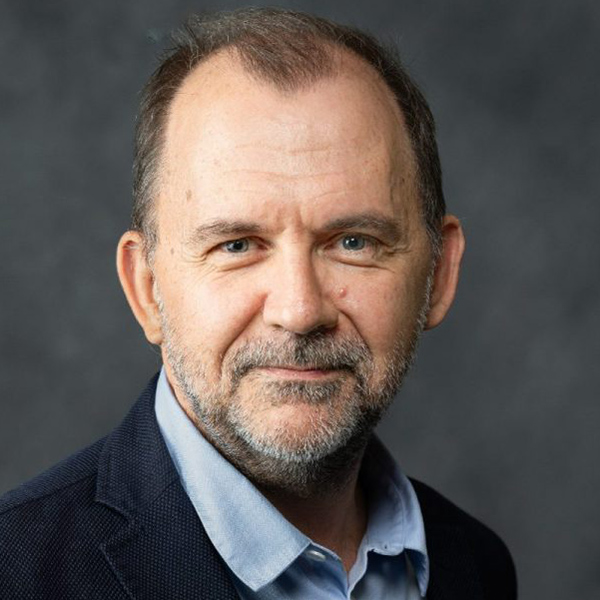
Prof. Dr Edouard Bugnion
About
Prof. Edouard Bugnion is a Full Professor in the School of Computer Science and Communications at EPFL. His primary focus in both teaching and research lies in the field of datacenter systems. Before joining EPFL in 2012, he spent 18 years in the US, during which he earned his PhD from Stanford University and co-founded two startups: VMware and Nuova Systems (acquired by Cisco). He served as VMware’s first CTO and was later the VP/CTO of Cisco’s Server, Access, and Virtualization Technology Group. Prof. Bugnion is an ACM Fellow, a member of the Swiss Academy of Technical Sciences (SATW), and a recipient of the ACM software systems award. Prof Bugnion served as EPFL Vice President for Information Systems between 2017 and 2020 and as a Director of InnoSuisse from 2017 until 2024. As of January 2025, he holds the position of Vice President for Innovation and Impact at EPFL. He additionally serves as an independent Director on the boards of Logitech and the International Committee of the Red Cross (ICRC).
18:30 – 20:00 ǀ Apéro riche

8:00 – 9:00 ǀ Registration
9:00 – 11:10 ǀ Parallel Sessions Strategic Areas 2: Talks
The Parallel Sessions provide a forum for in-depth discussion on each of the six strategic areas of the ETH Domain. They take place in parallel, allowing participants to choose the topics that best match their interests and field of research. Each session includes scientific presentations, discussions and opportunities for exchange, promoting knowledge sharing and the co-creation of new ideas. Click on the images to find out more.
11:10 – 11:25 ǀ Break
11:25 – 12:15 ǀ Poster Session
The poster sessions for all the Strategic Areas will be held at the same time to promote networking and exchange across the areas. The posters will be presented and provide a platform for scientists. Discover the list of participants and the titles of their posters on this page
12:15 – 13:15 ǀ Lunch Break
13:15-14:00 ǀ Plenary Session 3 ǀ Panel Discussion with the Representatives of the Coordination Groups of the Strategic Areas
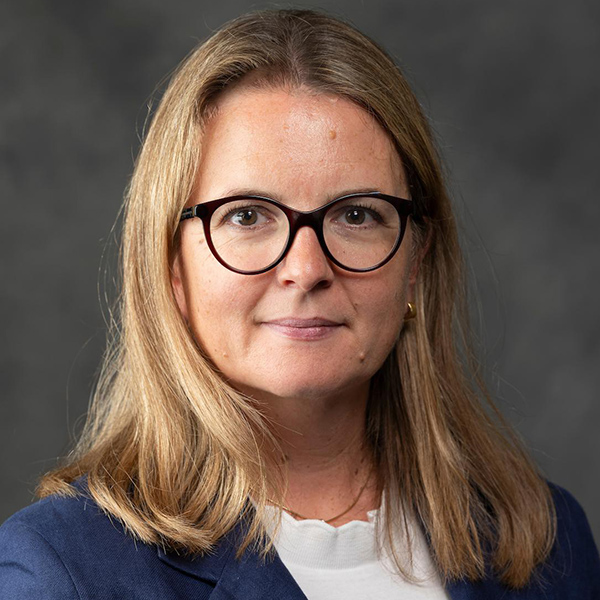
Prof. Dr Stéphanie P. Lacour
About
Stéphanie P. Lacour is full professor at the School of Engineering at the Ecole Polytechnique Fédérale de Lausanne. She received her PhD in Electrical Engineering from INSA de Lyon, France, and completed postdoctoral research at Princeton University (USA) and the University of Cambridge (UK). She joined EPFL in 2011. She was the founding director of EPFL Neuro X institute – an interschool institute focused on interdisciplinary and translational neuro-research. Since 2025, she is EPFL Vice-President for support to Strategic Initiatives.
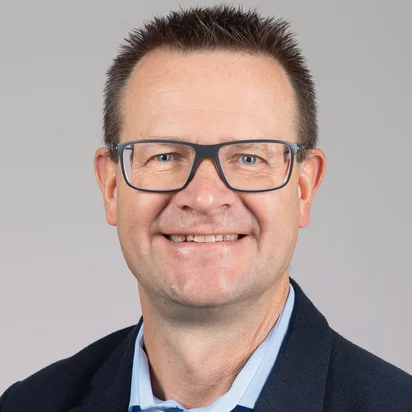
Prof. Dr Thomas Justus Schmidt
About
Thomas J. Schmidt has been Professor and Chair for Electrochemistry at ETH Zürich since 2011 and Head of the PSI Center for Energy & Environmental Sciences at Paul Scherrer Institute (PSI) in Villigen (Switzerland) since 2018. He is also The Director of the Swiss Center of Excellence for NetZero Emissions. He received his University Diploma in Chemistry from the University of Ulm/Germany in 1996 and his PhD in Chemistry from the same University in 2000. At Paul Scherrer Institut in Villigen/Switzerland he worked on the development of membrane electrode assemblies (MEAs) using radiation-grafted membranes and on oxygen electrocatalysis with oxide containing catalysts. Since fall 2002, he was working in the industrial development of high temperature membrane electrode assemblies and its components (membranes, catalysts, electrodes) using polybenzimidazole based membranes at BASF Fuel Cell GmbH (formerly Pemeas GmbH). During these eight years in industries, Dr. Schmidt led the high-temperature MEA R&D activities as Director R&D.
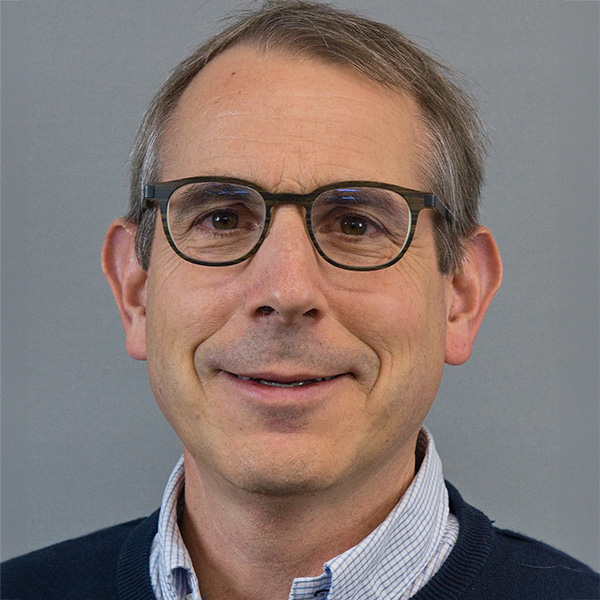
Dr Gian-Kasper Plattner
About
Dr Gian-Kasper Plattner is Senior Scientist and Head of the Office of the Director at the Swiss Federal Institute for Forest, Snow and Landscape Research WSL, where he also leads the institutional environmental data portal EnviDat. He holds a PhD in climate and environmental physics from the University of Bern and has conducted research at the University of California in Los Angeles, the University of Bern, and ETH Zurich, focusing on physical-biogeochemical modelling of the carbon cycle and climate change. He served as Head of the Technical Support Unit for Working Group I of the Intergovernmental Panel on Climate Change’s Fifth Assessment Report and was a lead author of the Sixth Assessment Report. Gian-Kasper Plattner lectures at ETH Zurich, the University of Basel, and the University of Bern, and contributes to national climate science initiatives, including the Swiss National Center for Climate Services and the Center for Climate System Modelling.

Prof. Dr Edouard Bugnion
About
Prof. Edouard Bugnion is a Full Professor in the School of Computer Science and Communications at EPFL. His primary focus in both teaching and research lies in the field of datacenter systems. Before joining EPFL in 2012, he spent 18 years in the US, during which he earned his PhD from Stanford University and co-founded two startups: VMware and Nuova Systems (acquired by Cisco). He served as VMware’s first CTO and was later the VP/CTO of Cisco’s Server, Access, and Virtualization Technology Group. Prof. Bugnion is an ACM Fellow, a member of the Swiss Academy of Technical Sciences (SATW), and a recipient of the ACM software systems award. Prof Bugnion served as EPFL Vice President for Information Systems between 2017 and 2020 and as a Director of InnoSuisse from 2017 until 2024. As of January 2025, he holds the position of Vice President for Innovation and Impact at EPFL. He additionally serves as an independent Director on the boards of Logitech and the International Committee of the Red Cross (ICRC).
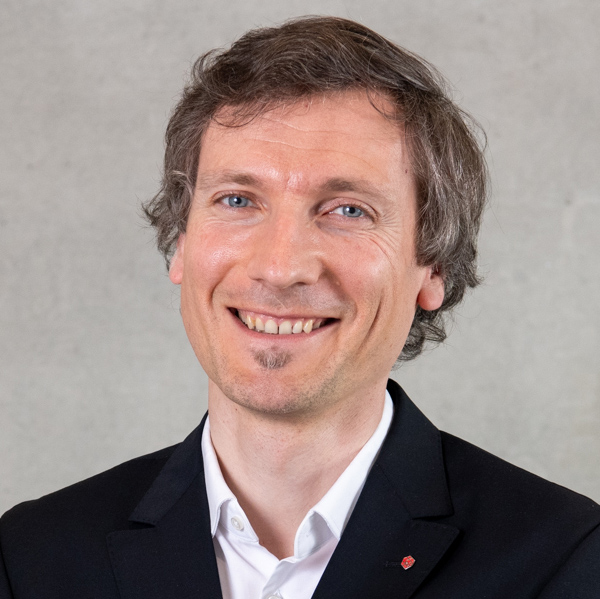
Dr Lorenz Herrmann
About
Since 2022 Lorenz Herrmann has been Head of the Department "Advanced Materials and Surfaces" at Empa and a member of Empa's directorate. In this function he is responsible for Empa's Research Focus Area "Nanoscale Materials and Manufacturing Technologies". Lorenz Herrmann studied Physics at the University of Regensburg and Ecole Normale Supérieure in Paris. He followed a binational PhD program in solid state physics and received his degree in 2010 from the Université Pierre et Marie Curie in Paris and the University of Regensburg. Afterwards he joined ABB Corporate Research in Baden-Dättwil, Switzerland, where he worked as a scientist, group leader and department head on technology development projects in the context of the company's product portfolio. His personal research field is material development and characterization in the context of electrical engineering applications.
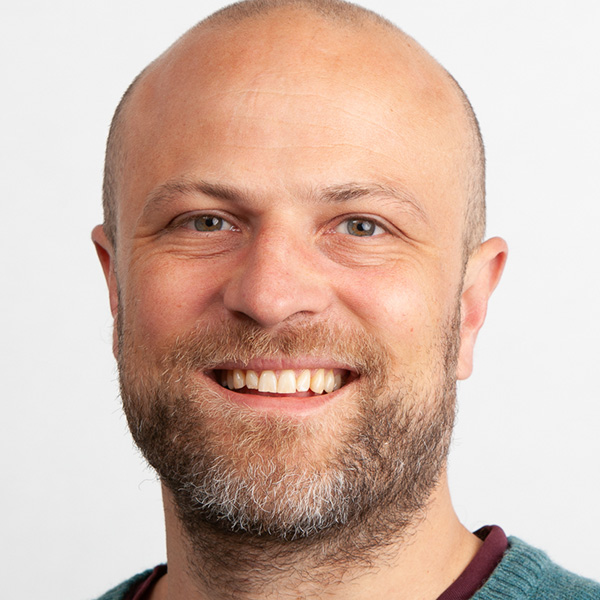
Prof. Dr Manuel Fischer
About
I am Head of Department and a group leader of the research group Policy Analysis and Environmental Governance (PEGO) at the Department of Environmental Social Sciences at Eawag and an adjunct professor (Titularprofessor) at the Institute of Political Science, University of Bern.
My research analyses governance arrangements, decision-making processes and political networks, with a focus on water and environmental issues.
14:00 – 14:30 ǀ Plenary Session 4 ǀ Global Space Trends and Their Impact on the ETH Domain
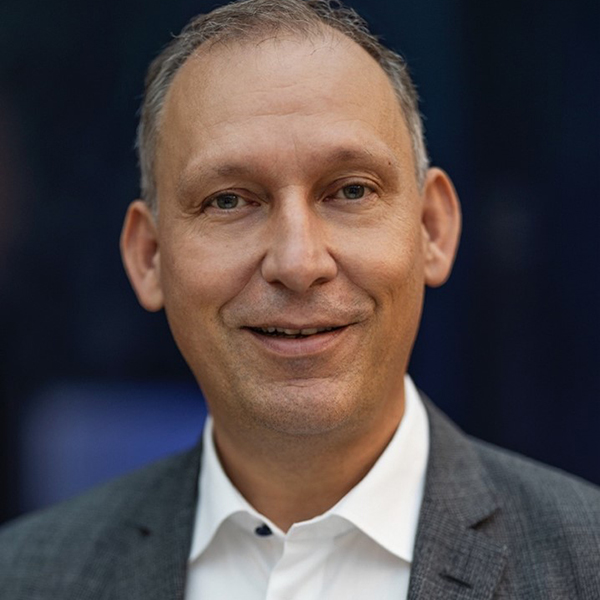
Prof. Dr Thomas Zurbuchen
Global Space Trends and Their Impact on the ETH Domain
About
Thomas is currently working as professor and Head of ETH Zurich | Space, founding director of ETH’s GeoLab, and as a sought-after speaker, consultant and board member for Schindler group, Firefly, and McKinley. He was the longest continually running Head of Science at NASA from 2016 to 2022 responsible for 130 missions with 37 launches including JWST, Parker and Perseverance. Previously, he was a Professor for Space Science and Aerospace Engineering at the University of Michigan. Also, founder of one of the largest University-based Entrepreneurship programs worldwide - the Michigan Center for Entrepreneurship.
He holds an MS and PhD in physics/astrophysics from the University of Bern and received many awards and recognitions, including four honorary doctorates, and membership of the International Academy of Astronautics.
14:30 – 15:15 ǀ Plenary Session 5 Panel ǀ Discussion with the ETH Board President and the Presidents and Directors of the ETH Domain Institutions

Prof. Dr Michael O. Hengartner
About
Michael O. Hengartner has been President of the ETH Board since 2020. He served as President of the University of Zurich (UZH) from 2014 to 2020, and President of swissuniversities from 2016 to 2020. He has dual Swiss and Canadian citizenship and grew up in Quebec City where he studied biochemistry at the Université Laval. In 1994, Michael O. Hengartner was awarded his doctorate at the Massachusetts Institute of Technology in the laboratory of Nobel Laureate H. Robert Horvitz. He then headed a research group at the Cold Spring Harbor Laboratory, USA. After that, he was appointed Professor at the Institute of Molecular Biology in 2001 and Dean of the Faculty of Science at UZH from 2009 to 2014. Michael O. Hengartner has an Executive MBA at IMD Lausanne and a number of awards for his research and teaching skills.
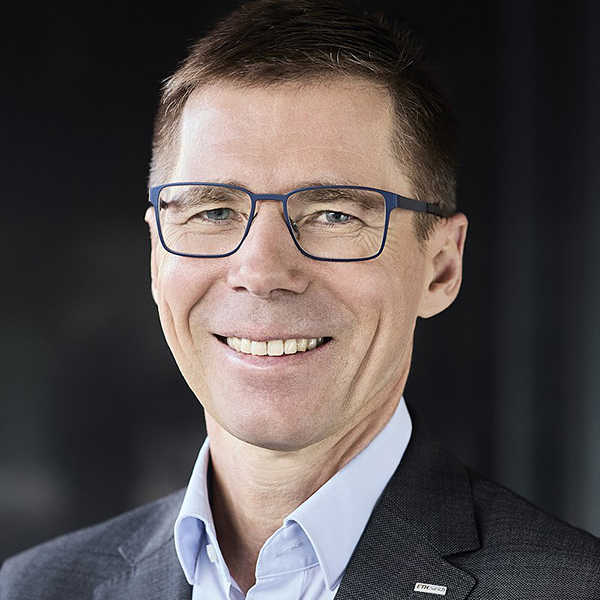
Prof. Dr Joël Mesot
About
Joël Mesot has been President of ETH Zurich since 2019 and, in this role, bears legal and political responsibility for the university. Under his leadership, ETH Zurich has intensified its policy-relevant research and deepened the dialogue with political actors both in Switzerland and internationally. Furthermore, Mesot launched various initiatives related to space, AI, cyber security and energy and initiated the establishment of an ETH Zurich Campus in Heilbronn, Germany.
Raised in Geneva, Joël Mesot studied physics at ETH Zurich and received his doctorate on high-temperate superconductors in 1992. He spent several years researching quantum materials in France (Institut Laue-Langevin), the US (Argonne National Laboratory), and at the Paul Scherrer Institute (PSI), where he became head of the neutron scattering laboratory in 2004. In 2008, he was elected Director of the PSI and was promoted to Full Professor at ETH Zurich. During his leadership at the PSI the X-ray free-electron laser facility SwissFel was built, among other projects.
Joël Mesot is a member of national and international advisory boards, including the Foundation Board of the Swiss Innovation Park and the Governing Board CREATE (Singapore). For his scientific contributions, he received the IBM Prize of the Swiss Physical Society (SPG) in 1995 and the Latsis Prize of ETH Zurich in 2002.

Prof. Dr Anna Fontcuberta i Morral
About
Anna Fontcuberta i Morral studied Physics at the University of Barcelona, followed by a PhD in Materials Science at the Ecole Polytechnique Palaiseau, France. Between 2001 and 2005, she conducted research as a postdoc and visiting researcher at the California Institute of Technology, Pasadena, USA, and as a CNRS researcher in France. During this time, she was co-founder of the successful start-up Aonex Technologies, a company that developed lower cost substrates for LEDs and multi-junction solar cells. She received her Habilitation degree in Experimental Physics at the Technical University of Munich, Germany in 2009.
Since 2008, she has been working at EPFL, where she was promoted to Associate Professor of Materials Science and Engineering in 2014 before being promoted to Full Professor in September 2019. She has established her Laboratory of Semiconductor Materials as the world leader in sustainable nanotechnologies. Between 2021 and 2024, she served as EPFL’s Associate Vice President for Centers and Platforms. In this latter role, she worked to build synergies across research disciplines boosting the reach of Centers (like EcoCloud, the Bernoulli Center and the Center for Quantum Science and Engineering) and she reinforced the possibilities for EPFL scientists and engineers access to state-of-the-art research facilities ( Research Computing Platform, Dubochet Center for Imaging, Center for Micronanofabriction to name a few). She joined the Research Council of the Swiss National Science Foundation (SNSF) in 2015 and, from 2020 to 2024, she served as chair of the SNSF’s specialized committee on international cooperation. In this role, she helped develop the international strategy and took part in a working group to design the recent changes to the SNSF’s bylaws and policies
Her work has been recognized through a number of distinctions. For instance, she was selected for a Marie Curie Excellence Grant in 2005, a European Research Council Starting Grant in 2009, an SNSF Back-up Schemes Consolidator Grant in 2015, and the Emmy Noether Distinction for Women in Physics from the European Physical Society, also in 2015.
She became President of EPFL in January 2025.
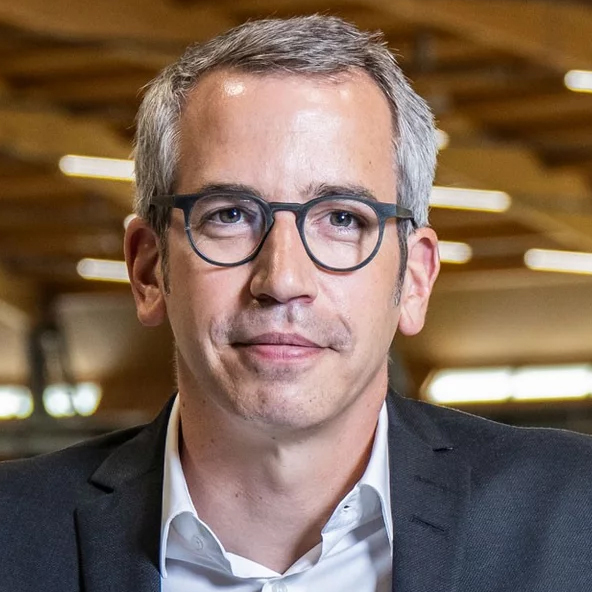
Prof. Dr Christian Rüegg
About
Christian Rüegg studied Physics at ETH Zurich, obtaining his doctorate in 2005 at the Laboratory for Neutron Scattering at ETH Zurich and PSI. From 2005 to 2011, he worked at the London Centre for Nanotechnology of University College London (UCL) and Imperial College London. He was a Royal Society University Research Fellow and Assistant and Associate Professor at UCL. From 2011 to 2016, Christian Rüegg headed the PSI Laboratory for Neutron Scattering and Imaging in the Research Division Neutrons and Muons, and from 2017 to 2020, he was the head of this Research Division. In 2020, he took up the post of PSI Director. He represents PSI on numerous international committees for large-scale research facilities and as part of important cantonal/national initiatives for the promotion of innovation, such as Switzerland Innovation.

Dr Christoph Hegg
About
Deputy Director of WSL and Head of Planning and Logistics since 2008. From mid-2023 to the end of September 2024, he was Acting Director of WSL. Christoph Hegg studied geography at the University of Bern and obtained his doctorate in 1996 with a thesis on hazardous processes in torrential catchment areas. He then worked as a research assistant at WSL, where he headed the Forest Hydrology Group from 1999 and a research programme on natural hazards from 2006. In 2008, he was elected Deputy Director of WSL and became Head of the Planning and Logistics Department. Christoph Hegg is a member of the Board of Directors of Hans Nebiker AG in Sissach, a member of the Scientific Advisory Board of the German Weather Service (DWD) and a member of the Natural Hazards Platform (PLANAT).
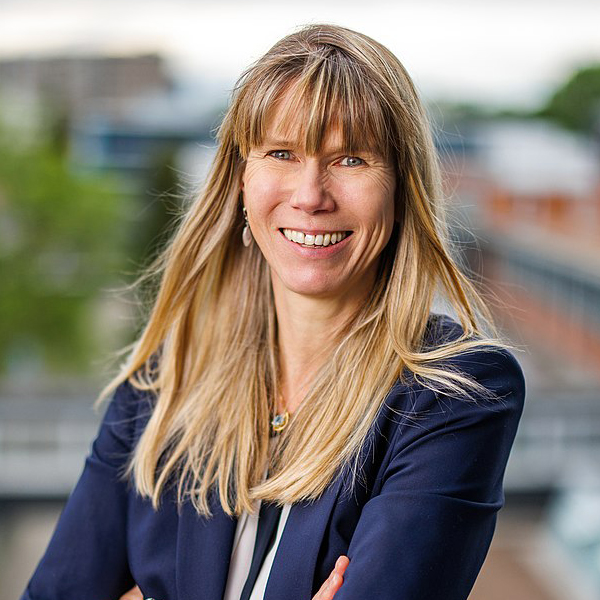
Prof. Dr Tanja Zimmermann
About
Tanja Zimmermann received her doctorate from the University of Hamburg in 2007. From 2001 to 2012, she worked closely with industry to establish the cellulose nanocomposites research area at Empa, and headed the Department of Applied Wood Materials from 2011 to 2017. In 2017, she became a member of the management team and head of the Functional Materials Department, leading around 200 employees. She has been Empa Director since June 2022.
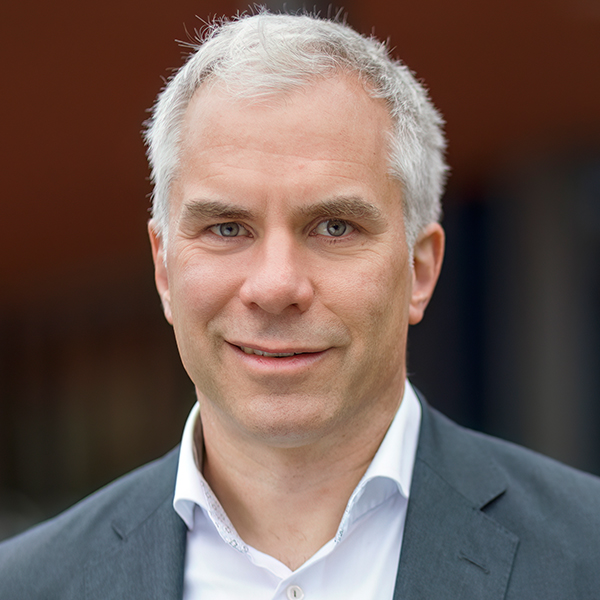
Prof. Dr Martin Ackermann
About
Martin Ackermann studied biology at the University of Basel, where he received his PhD in 2002. He then worked for two years as a postdoctoral researcher at the University of California, San Diego. In 2004, he joined ETH Zurich as a senior scientist and was appointed Assistant Professor SNSF in 2006. In 2008, he became a tenured professor at ETH Zurich in a joint appointment with Eawag, first as Associate Professor and, in 2015, as Full Professor of Microbial Systems Ecology. In January 2023, Martin took on the role of Director of Eawag. At the same time, he became Professor of Microbial Systems Ecology at EPFL. Alongside his duties as Director, he continues to co-lead his research group part-time.
15:15 – 15:30 ǀ Closing of the Conference
Accommodation
For any information concerning accommodation in Lausanne, please contact:
LAUSANNE TOURISME
Mr. Olivier MOURAUX
Avenue de Rhodanie 2
CH-1001 Lausanne
mouraux@lausanne-tourisme.ch
Phone: +41 21 613 73 15
Location
SwissTech Convention Center ǀ EPFL
Rte Louis Favre 2, 1024 Ecublens
Access




